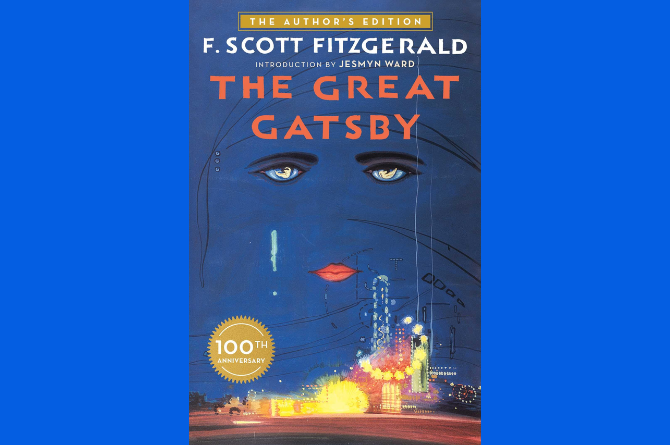June 1, 2025

Aaaanddd we're back. Hope you had a great Memorial Day Weekend!
Between launches and launch events, the short 4-day week has been anything but uneventful here at mogul. Enough about us, let's get into it.
- Alex Blackwood

Move over Rihanna - There's a new beauty mogul in town. Hailey Bieber just sold her three year old skincare brand, Rhode, to e.l.f. Beauty in a deal worth up to $1 billion. The model turned CEO pocketed a "generous cash payout" and will stay on as Chief Creative Officer and Head of Innovation, because apparently, marrying Justin Bieber and building a $212 million revenue brand in 36 months wasn't enough of a flex. Rhode's "peptide glazing fluid" and viral TikTok blushes will soon hit Sephora shelves, proving that Gen Z's obsession with "clean girl" aesthetics can indeed be monetized at scale. E.l.f., known for its $6 dupes of high end products, now gets to play in the prestige sandbox with an upfront payment of $800 million in cash and stock, plus a potential $200 million earnout over three years. Let's see if they can resist slapping a "But It's Affordable!" sticker on Rhode's $29 lip treatments.
Okay. Come on. He can't lose. He can't lose - Like Alan at the the Blackjack table in the Hangover, Jensen Huang & Nvidia dropped their Q1 earnings and once again made every other company look like they're playing checkers while Nvidia's out here playing 4D chess. They reported earnings of 81 cents per share (beating the 75 cents expected) on revenue of $44.1 billion, up 69% year over year. Data center revenue hit $39.1 billion, up 73% from last year. The only hiccup? A $4.5 billion charge due to restrictions on selling H20 chips to China. But even with that speed bump, Nvidia's like that friend on the golf course who complains about their "bad" day while showing you their scorecard at 2 over for the day. Without the $4.5 billion charge, non-GAAP earnings would've been 96 cents per share, making their 81 cents look like they were sandbagging all along. Gaming revenue jumped 48% quarter over quarter too. At this point, Nvidia could probably announce they're pivoting to selling lemonade and still beat earnings expectations.
Salesforce, more like "Buy"- force, amirite? - Salesforce decided this week that $28 billion for Slack was just a warm up. The CRM giant is buying data management firm Informatica for $8 billion in a bid to dominate the "agentic AI" era. The deal gives Salesforce control over Informatica's metadata catalog and data governance tools, which are critical for training AI models that don't hallucinate supply chain forecasts. CEO Marc Benioff called it "transformational," stating the company plans to utilize Informatica alongside Data Cloud, Mule, and Tableau products to "empower autonomous agents to produce more intelligent, secure, and scalable results for all businesses". Investors shrugged and said, "Cool, but can it fix your 17% stock slump this year?" The acquisition will be financed through a mix of cash reserves and newly acquired debt, continuing Salesforce's pattern of growth through acquisition rather than organic development. The real winners? Lawyers billing approximately 1,000 hours to make "data integration" sound exciting

This week delivered a plot twist worthy of a Shyamalan thriller: just when Trump's tariff threats had investors reaching for their stress balls, a federal court stepped in with a legal reality check that sent markets soaring.
What's happening?
The U.S. Court of International Trade ruled that President Trump lacked the authority to implement his sweeping tariffs under the Emergency Economic Act of 1977. This isn't just legal nitpicking it's a fundamental challenge to how far executive power can stretch in reshaping America's trade relationships. The court essentially said "hold your horses" to Trump's plan to slap tariffs on everything from Canadian lumber to Chinese electronics, stating that the U.S. Constitution grants Congress the sole power to oversee commerce with foreign nations. Markets rallied after the ruling, sending the Dow up 553 points and S&P futures soaring 1.6%.
What does this mean?
Think of this ruling like a timeout in basketball when one team is about to score. It doesn't end the game, but it gives everyone a chance to regroup and figure out their next move. The decision stemmed from two lawsuits: one initiated by the nonpartisan Liberty Center on behalf of five small American businesses importing goods from the targeted countries, and the other by a coalition of 13 U.S. states. Markets celebrated because uncertainty – not tariffs themselves – is often the real enemy of stock prices. The Trump administration has already submitted a notice of appeal, so this is more of a delay than a definitive victory for free trade advocates.
Why should investors care?
Tariffs are essentially taxes on imports, and those costs typically get passed down to consumers and businesses. The ruling invalidated 10% universal tariffs and 20% levies on Chinese fentanyl imports, trimming the U.S. average tariff rate from 15% to 6.5%. If you're invested in companies that rely on international supply chains (spoiler alert: that's most of them), tariffs can squeeze profit margins faster than you can say "trade war". The court's ruling bought time for these companies to adjust their strategies rather than scrambling to absorb sudden cost increases.
Why is this happening?
Trump's using the same playbook from his first term, but the legal landscape has shifted. Congress has historically held authority over tariffs, though it's gradually transferred powers to the presidency over decades. Trump argued that America's trade deficit constitutes a national emergency justifying the tariffs, but courts are increasingly skeptical of executive overreach. It's like when your teenager argues that needing concert tickets constitutes a family emergency – technically creative, legally questionable.
The bigger picture
This ruling highlights the tension between economic nationalism and institutional constraints. Markets hate uncertainty, but they hate unpredictable policy whiplash even more. Whether you're bullish or bearish on tariffs, knowing the rules of the game helps everyone plan better.
What's next?
The administration will likely seek alternative justifications for tariffs while appealing the decision. Congress could also step in, though getting legislative consensus on trade policy is about as easy as getting your family to agree on a restaurant. For now, investors get a breather to assess which sectors might benefit from continued global trade integration versus those positioned for a more protectionist future.
Smart money is watching this space closely – because while courts can pause policies, they can't eliminate the underlying political and economic forces driving them.


This multi-level, Victorian-style home boasts 7 bedrooms, 2.5 baths, a spacious master suite, and a large country kitchen, with potential to expand to 8–10 rentable rooms. Recent 2022 upgrades include new flooring, paint, siding, doors, an HVAC unit, and state-of-the-art security cameras for peace of mind.
Positioned on a large, private corner lot, The Ratliff combines timeless architectural elegance with robust income performance. Quietly situated yet conveniently close to downtown Douglasville amenities and transit routes, this property is a perfect blend of tranquility and accessibility.
Investment Highlights:
Financial Overview:
With over $87,000 raised in less than 48 hours since its official launch, make sure to secure your stake in The Ratliff while you still have the chance.


We are approaching beach season, so figured I would start out with a light hearted book review, as I had a chance to re-read it recently.
I don’t care how many times you’ve seen the Leonardo DiCaprio meme, reading this book will gut you. Fitzgerald doesn’t just dissect ambition; he flays it alive, showing how Gatsby’s mansion-sized hopes are built on sand, his love letters written in invisible ink, and his “greatness” a mirage reflected in Daisy’s hollow eyes. By the last page, you won’t just question the American Dream, you’ll side eye your own LinkedIn bio, because chasing status suddenly feels as empty as a speakeasy at dawn.
⭐ 4.85 / 5.0 in my book (no pun intended)


In 1974, FedEx was on the verge of bankruptcy with only $5,000 left in company assets. The founder took that last $5,000 to Las Vegas, gambled it at blackjack tables, and turned it into $32,000 – just enough to keep the company alive. Today, FedEx generates over $65 billion annually. Sometimes the best business strategy is knowing when to bet it all on black.

Written by Alex Blackwood & Thomas Horcel
Receive this weekly recap when you sign up for our platform